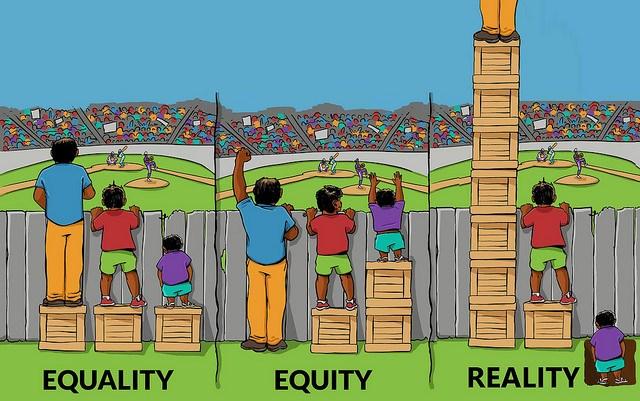It’s equity we are after when it comes to state assessments. It is not enough to provide equality or access. If you want to offer equity, you will make sure that if I’m not quite as tall that you give me something that will allow me to see the game – that's equity. What’s happening in South Carolina right now, our reality is that these ever-changing tests have given the affluent greater advantage, while leaving our children staring at a seemingly insurmountable wall.
I believe that we can achieve and even exceed expectations if the playing field is somehow leveled. If current funding and testing requirements persist, we can test for the next 50 years and still perform behind other more affluent districts.
The current average annual income in South Carolina is about $50,000 per year. Households earning $24,340 or less per year are considered impoverished. The average annual income in Lee County is $31,000. In Bishopville, where most of our students originate from, the average annual income is $22,000, which is below the poverty line in South Carolina. That family earns about $423 per week.
Let’s imagine what a home like that can feel or look like with one child. Now let’s put multiple children in it. In those homes, it’s not that parents don't want to be engaged. They may not have the resources to be engaged. In homes where the annual income is greater, the parents are more likely to be engaged, which greatly impacts the success of the child.
It is unfair to compare us with districts where the average annual income of its residents far exceeds that of ours. It is unfair that these wealthier districts are increasingly identified as having priority schools which shifts even more resources away from us and to them. As the saying goes, “The rich get richer and the poor get poorer.”
I will continue to be outraged about the authority they have given one person to come in and take over a district. Our senators and representatives don’t have that power. Now, let’s look at the districts who’ve been taken over. They’ve taken over Allendale twice and failed them. They’ve taken over Florence Four (Timmonsville). They’ve taken over Williamsburg, and there is some commonality among all these districts. We all look alike.
We are the minority not only in ethnicity but when it comes to poverty compared to other districts. As a community, we've got to find a way to come together because this is an issue that affects the community at large. These are things that we should be talking about with our local delegation.
In 1995, County Council asked you to increase the penny sales tax. They said if you increase it from five cents on the dollar to six cents on the dollar, they’d share 29 percent of that penny with the school district. In 2011, they decided to have a meeting without telling you, where they changed their mind and decided they no longer want to share that penny.
So in 2012, they wanted to raise that penny sales tax again, and where are we currently? We’re at eight cents on the dollar, so we’ve raised the tax several times. And now, they want to do it again.
They want to raise the penny to nine cents on the dollar for citizens in Lee County where in your largest city (Bishopville) residents are making on average $22,000 per year. So, I’ll pose a question, “Can we afford another penny?”
What we need is our county working hard to bring industry here. It’s not that the school system has failed. We have a graduation rate from the class of 2018 of 88 percent. There are school districts around the state that can't say that. We are graduating more students than we ever have. The problem isn't our educational system. The problem is when I get my high school diploma and I go to college and I earn that degree, where am I coming to?
We are here because of the children. It’s called our future. It’s not just our future, it’s our present.
